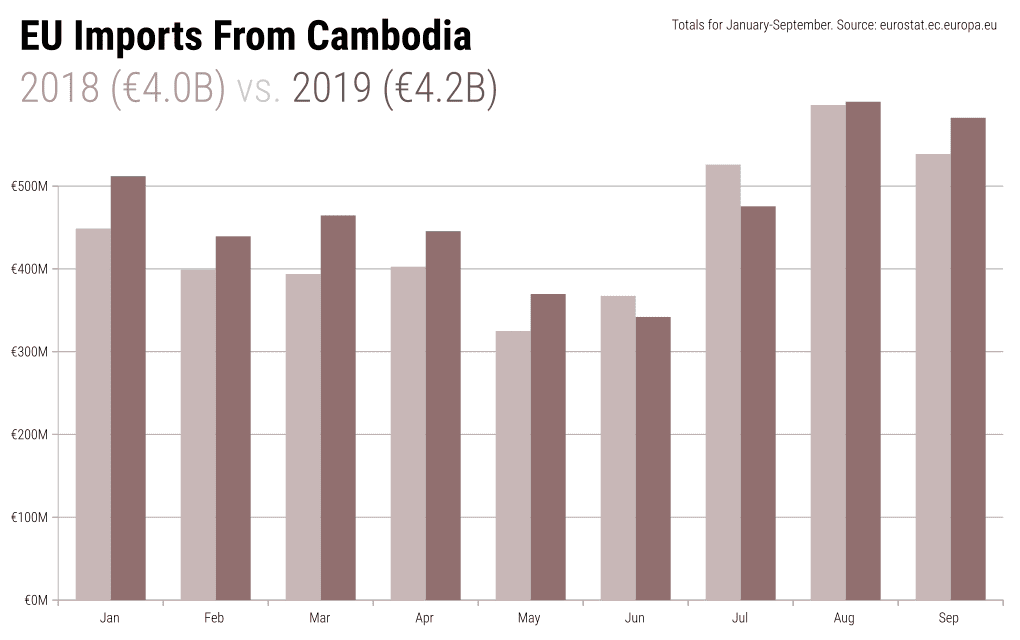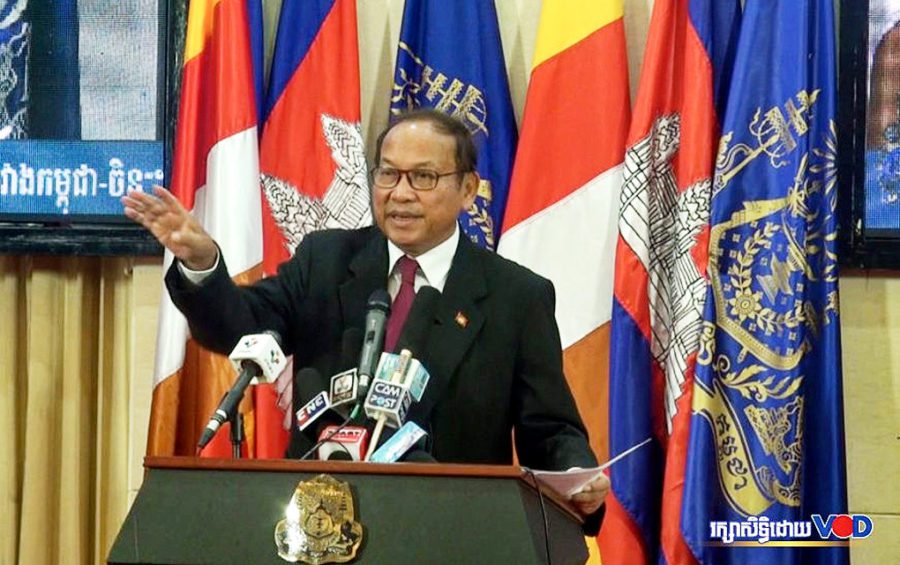Government spokesman Phay Siphan on Thursday appealed to media outlets to stop seeing the potential loss of duty-free trade with the E.U. as “an evil that is terrifying for Cambodia.”
“Samdech has said that if workers don’t worry and keep working, they will still get their salaries and get paid twice per month. Salaries will still keep increasing,” Siphan said, using an honorific for Prime Minister Hun Sen. “Don’t show an interest in people who use the EBA to terrify. They are not paying attention and sacrificing as the government has. That is the important point.”
The E.U.’s “Everything But Arms” (EBA) deal with Cambodia is currently under review due to alleged human rights and political abuses, including the dissolution of the main opposition CNRP eight months before the 2018 national election.
The E.U. submitted its preliminary report to the government on November 12, giving Cambodia one month to respond. A final decision is due in February.
In a Reuters report from November 4, representatives from H&M and Primark were quoted as saying they would do less business in Cambodia if the EBA was lost, and that it would be a big challenge for manufacturers.
The Reuters report also cited Garment Manufacturers Association of Cambodia (GMAC) secretary general Ken Loo as saying exports to the E.U. had dropped $600 million in just the first six months of the year compared to the same period a year earlier.
“You can already see the impact, just on the threat of withdrawal,” he said.
However, the effect was not visible in E.U. statistics, which recorded imports from Cambodia rising from 2.3 billion euros (about $2.6 billion) for January to June last year to 2.6 billion euros ($2.8 billion) for the same period this year, an increase of more than $200 million, or about 6 percent.

The E.U. is Cambodia’s largest export market, with about a 40 percent share.
Commerce Ministry spokesman Pen Sovicheat spoke at the same press conference as Siphan on Thursday, saying that reports about buyers removing orders from Cambodian factories were mere “rumor.”
“As of now, we are yet to conclude that we will be losing it,” Sovicheat said of the EBA. “Obviously, all garment factories are still operating as normal and have normal export production.”
May Titthara, executive director of journalists association CamboJA, which includes VOD editors on its board, said news media should be encouraged to try to report the facts about major issues such as the EBA.
“People in general should know what is going on in their society, and we know that right now in Cambodia what is important, what is happening that is of great concern, is the EBA. Because now they’ve given just one month for the government to respond to their report,” Titthara said.
Am Sam Ath, spokesman for rights group Licadho, said the government spokesman’s apparent suggestion that media should avoid reporting on the EBA did not seem like the kind of improvement in democracy and human rights that the E.U. was hoping to see.
“If we don’t talk about the EBA, what does that mean? Does it mean that we do not want to improve in accordance with European Union’s EBA terms?”
Upon submitting its preliminary report to the government, the E.U. issued a statement saying “real and credible improvement on the issues of concern is needed in order to avoid the withdrawal of EBA preferences.”
(Translated and edited from the original article on VOD Khmer)













